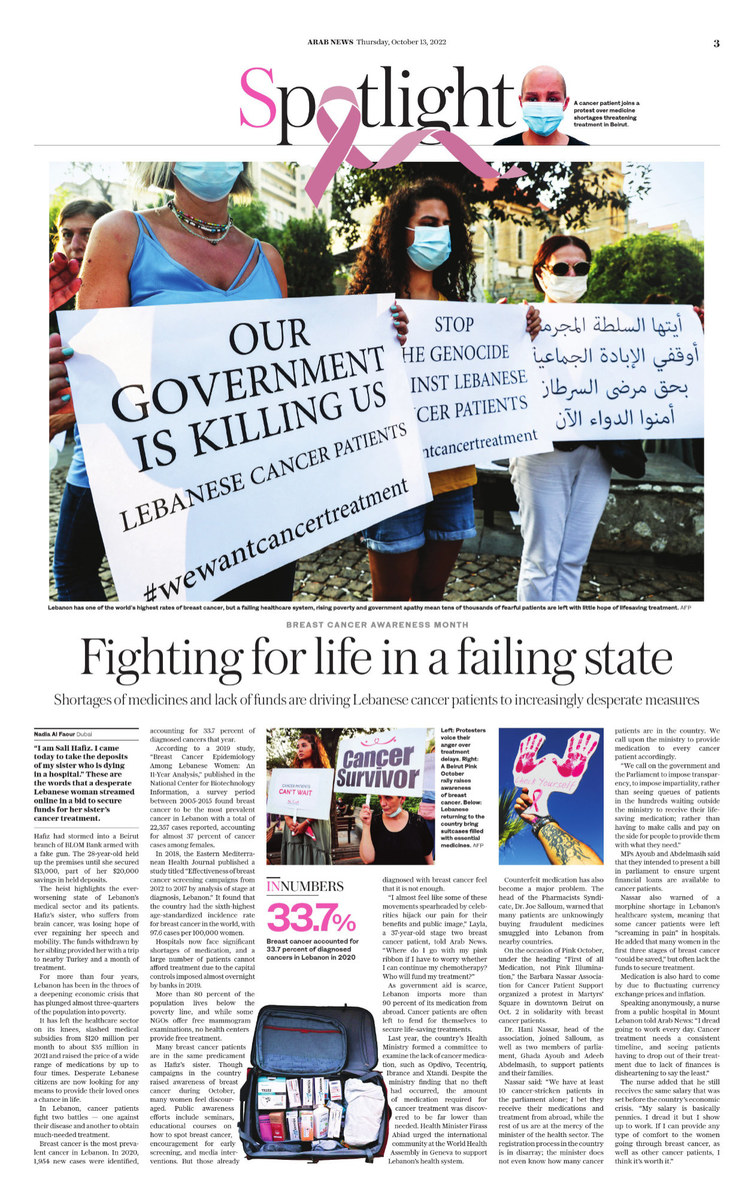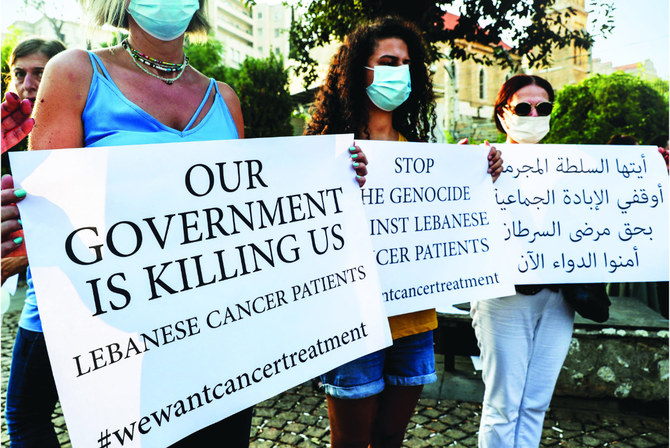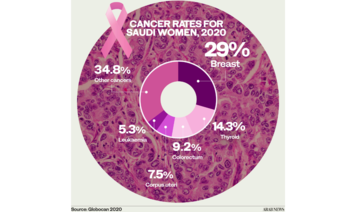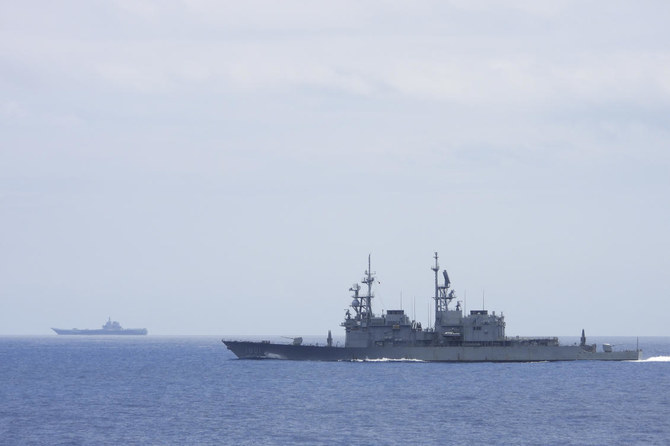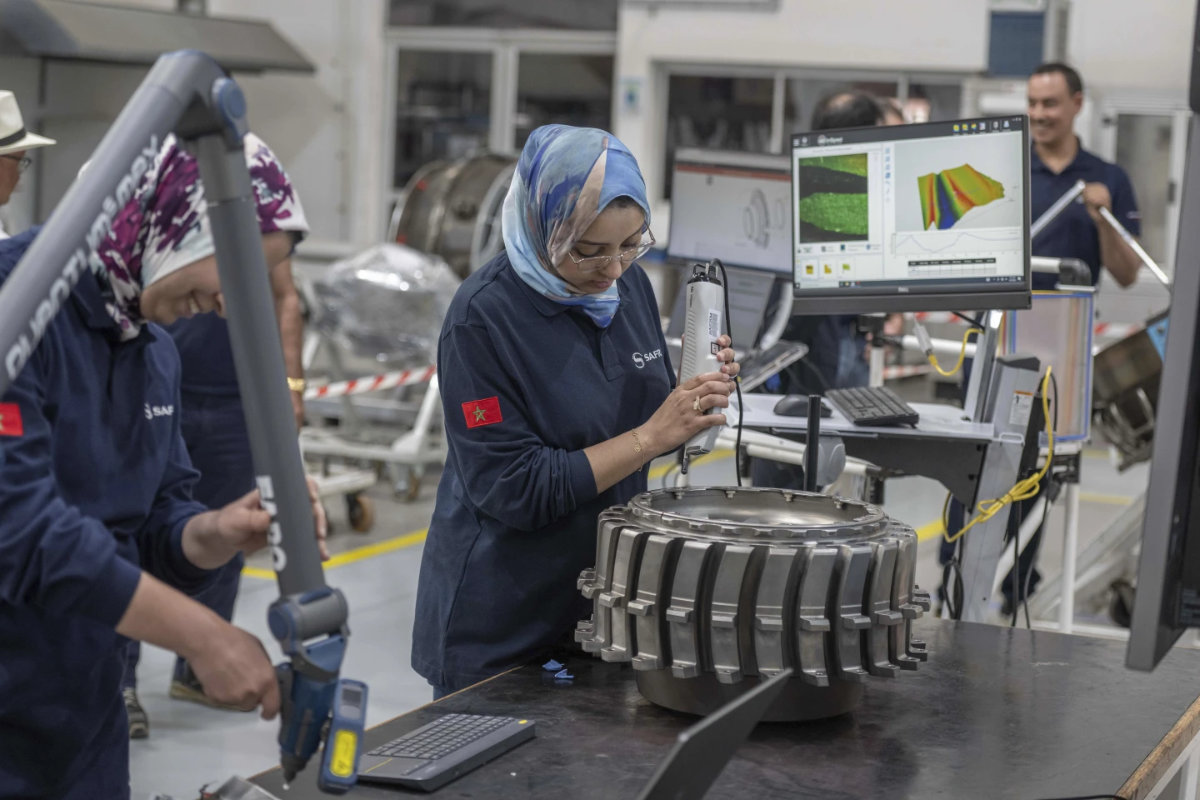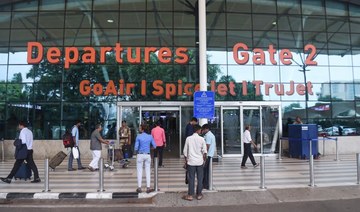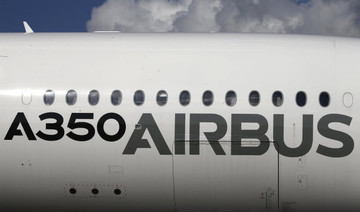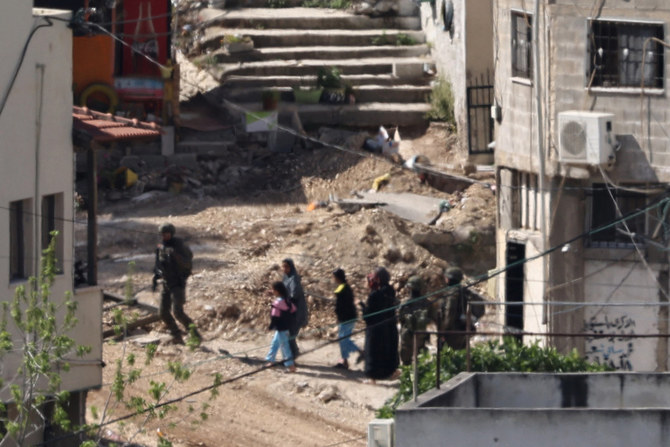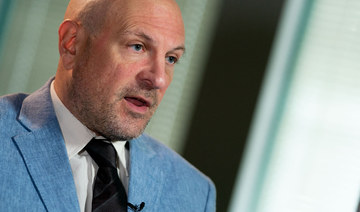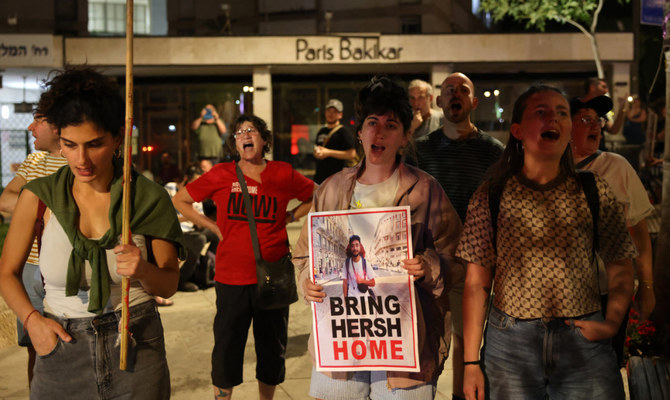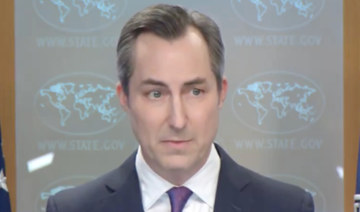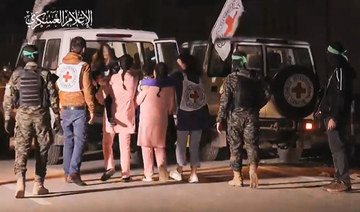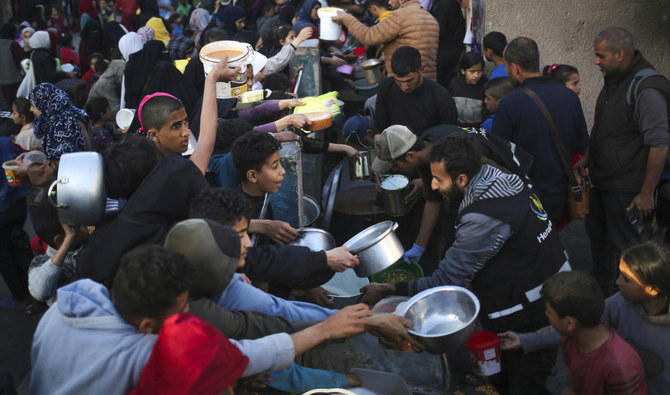DUBAI: “I am Sali Hafiz. I came today to take the deposits of my sister who is dying in a hospital.” These are the words that a desperate Lebanese woman streamed online in a bid to secure funds for her sister’s cancer treatment.
Hafiz had stormed into a Beirut branch of BLOM Bank armed with a fake gun. The 28-year-old held up the premises until she secured $13,000, part of her $20,000 savings in held deposits.
The heist highlights the ever-worsening state of Lebanon’s medical sector and its patients. Hafiz’s sister, who suffers from brain cancer, was losing hope of ever regaining her speech and mobility. The funds withdrawn by her sibling provided her with a trip to nearby Turkey and a month of treatment.

Protesters voice their anger over treatment delays. (AFP)
For more than four years, Lebanon has been in the throes of a deepening economic crisis that has plunged almost three-quarters of the population into poverty.
It has left the healthcare sector on its knees, slashed medical subsidies from $120 million per month to about $35 million in 2021 and raised the price of a wide range of medications by up to four times. Desperate Lebanese citizens are now looking for any means to provide their loved ones a chance in life.

A Beirut Pink October rally raises awareness of breast cancer. (AFP)
In Lebanon, cancer patients fight two battles — one against their disease and another to obtain much-needed treatment.
Breast cancer is the most prevalent cancer in Lebanon. In 2020, 1,954 new breast cancer cases were identified, accounting for 33.7 percent of diagnosed cancers that year.
According to a 2019 study, “Breast Cancer Epidemiology Among Lebanese Women: An 11-Year Analysis,” published in the National Center for Biotechnology Information, a study period between 2005-2015 found breast cancer to be the most prevalent cancer in Lebanon with a total of 22,357 cases reported, accounting for almost 37 percent of cancer cases among females.
In 2018, the Eastern Mediterranean Health Journal published a study titled “Effectiveness of breast cancer screening campaigns from 2012 to 2017 by analysis of stage at diagnosis, Lebanon.” It found that the country had the sixth highest age-standardized incidence rate for breast cancer in the world, with 97.6 cases per 100,000 women.
Hospitals now face significant medication shortages, and a large number of patients cannot afford treatment due to the capital controls imposed almost overnight by banks in 2019.

A large number of patients cannot afford treatment due to Lebanon's economic crisis. (AFP file)
More than 80 percent of the population lives below the poverty line.
While some NGOs offer free mammogram examinations, no health centers provide free treatment.
Many breast cancer patients are in the same predicament as Hafiz’s sister. Though ongoing campaigns in the country raise awareness of breast cancer during October, many women feel discouraged. Public awareness efforts include seminars, educational courses on how to spot breast cancer, encouragement for early screening and media interventions. But those already diagnosed with breast cancer feel that it is not enough.
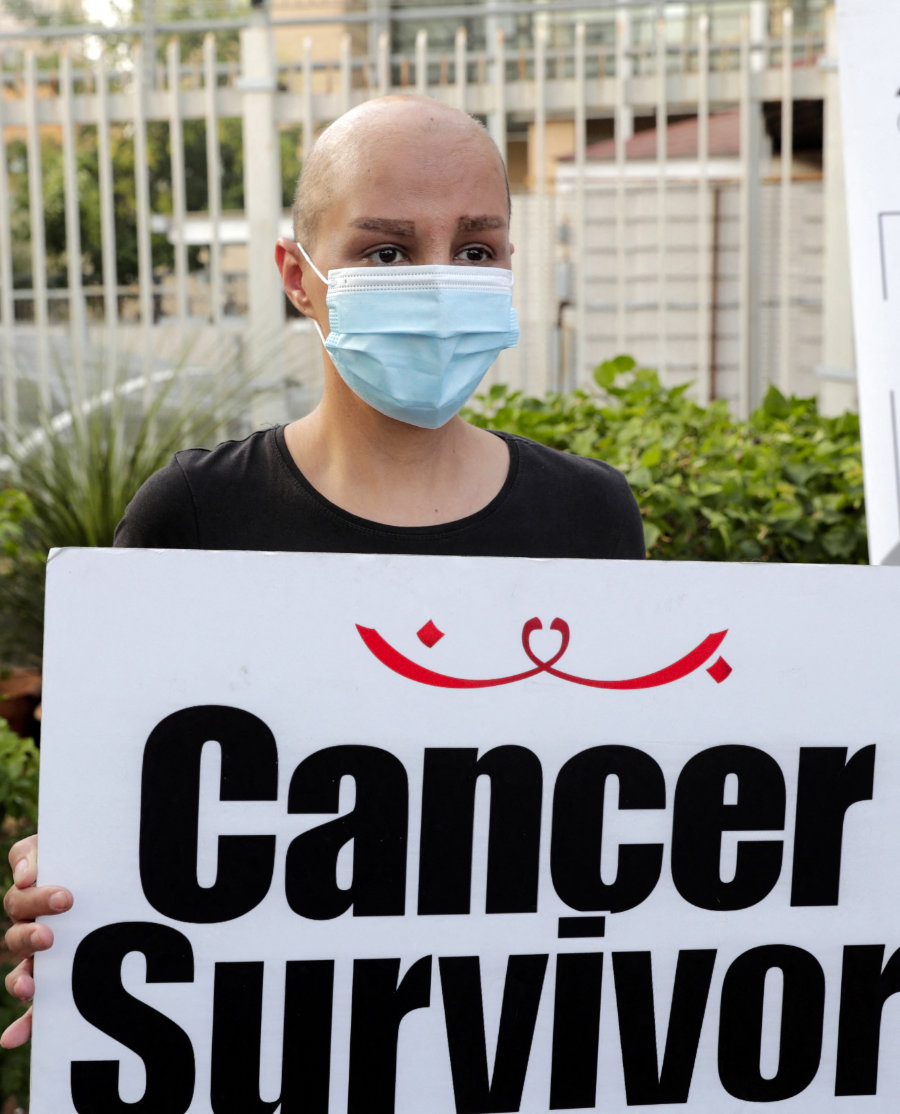
A cancer patient attends a gathering in Beirut to protest the shortage of medicine. (AFP file)
“I almost feel like some of these movements spearheaded by celebrities hijack our pain for their benefits and public image,” Layla, a 37-year-old stage 2 breast cancer patient, told Arab News. “Where do I go with my pink ribbon if I have to worry whether I can continue my chemotherapy? Who will fund my treatment?”
As government aid is scarce, Lebanon imports more than 90 percent of its medication from abroad. Cancer patients are often left to fend for themselves to secure life-saving treatments.
INNUMBER
33.7%
Breast cancer accounted for 33.7% of diagnosed cancers in Lebanon in 2020
Last year, the country’s Health Ministry formed a committee to examine the lack of cancer medication, such as Opdivo, Tecentriq, Ibrance and Xtandi. Despite the ministry finding that no theft had occurred, the amount of medication required for cancer treatment was discovered to be far lower than needed. Health Minister Firass Abiad urged the international community at the World Health Assembly in Geneva to support Lebanon’s health system.
Counterfeit medication has also become a major problem. The head of the Pharmacists Syndicate, Dr. Joe Salloum, warned that many patients are unknowingly buying fraudulent medicines smuggled into Lebanon from nearby countries.

A Beirut Pink October rally raises awareness of breast cancer. (AFP file)
On the occasion of Pink October, under the heading “First of all Medication, not Pink Illumination,” The Barbara Nassar Association for Cancer Patient Support arranged a protest on Oct. 2 in solidarity with breast cancer patients.
Gathered in Martyrs’ Square in downtown Beirut, Dr. Hani Nassar, the head of the association, alongside Salloum, as well as two members of parliament, Ghada Ayoub and Adeeb Abdelmasih, took part in the protest with patients and their families.
Nassar said: “We have at least 10 cancer-stricken patients in the Parliament alone; I bet they receive their medications and treatment from abroad, while the rest of us are at the mercy of the minister of the health sector. The registration process in the country is in disarray; the minister does not even know how many cancer patients are in the country. We call upon the ministry to provide medication to every cancer patient accordingly.
“We call upon the government and the Parliament to impose transparency, to impose impartiality, rather than seeing queues of patients in the hundreds waiting outside the ministry to receive their life-saving medication; rather than having to make calls and pay on the side for people to provide them with what they need.”

An elderly man stands at the shuttered door of a pharmacy in the southern Lebanese city of Sidon. (AFP file)
MPs Ayoub and Abdelmasih said that they intended to present a bill in Parliament to enable urgent financial loans for cancer patients.
Nassar also warned of a morphine shortage in Lebanon’s medical system, meaning that some cancer patients were left “screaming in pain” in hospitals. He added that many women in the first three stages of breast cancer “could be saved,” but often lack the funds to secure treatment.
Medication is also hard to come by due to fluctuating currency exchange prices and inflation.
Speaking anonymously, a nurse from a public hospital in Mount Lebanon told Arab News: “I dread going to work every day. Cancer treatment needs a consistent timeline, and seeing patients having to drop out of their treatment due to lack of finances is disheartening to say the least.”
The nurse added that he still receives the same salary that was set before the country’s economic crisis. “My salary is basically pennies. I dread it but I show up to work. If I can provide any type of comfort to the women going through breast cancer, as well as other cancer patients, I think it’s worth it.”
